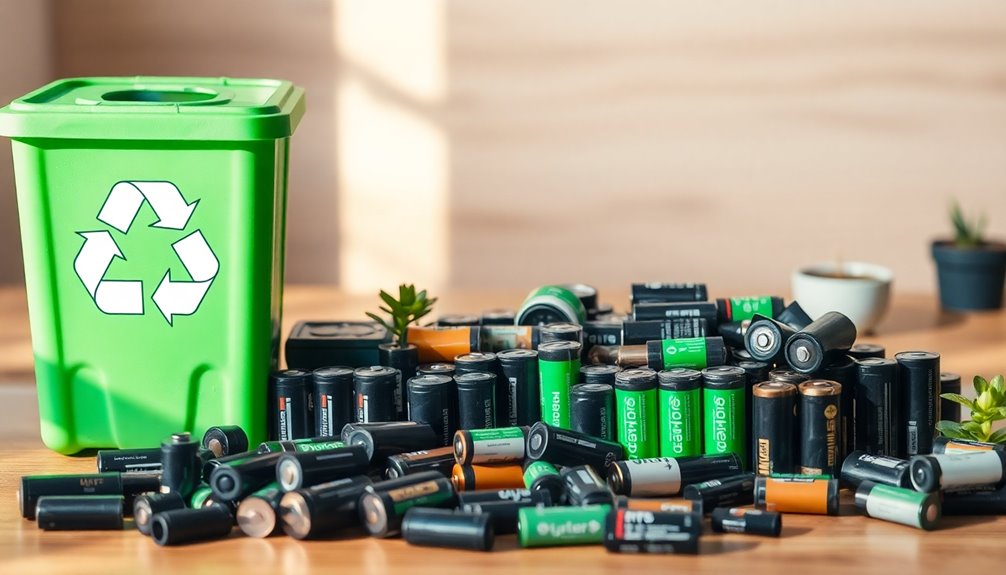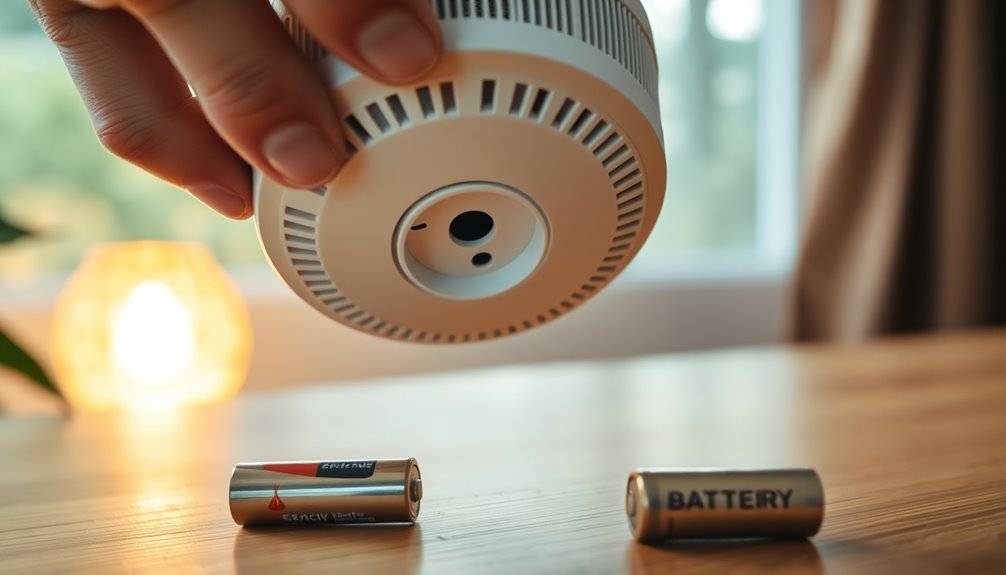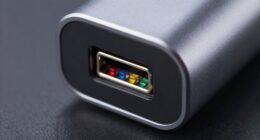Puncturing a swollen battery is extremely dangerous because it can release toxic chemicals, gases, and cause fires or explosions. You risk chemical burns and inhaling harmful fumes, which can seriously harm your health. Swollen batteries indicate internal damage and shouldn’t be tampered with—it’s just too risky. Proper disposal by professionals is essential to stay safe. Keep in mind, understanding the correct approach can prevent accidents—so continue to learn how to handle these hazards safely.
Key Takeaways
- Puncturing a swollen battery releases hazardous chemicals and gases, increasing fire and explosion risks.
- Damaging the battery’s containment can worsen internal reactions and safety hazards.
- Releasing toxic fumes harms health and the environment.
- Handling punctured batteries improperly can cause chemical burns or injuries.
- Professional disposal is essential; never puncture or attempt to open a swollen battery.

Swollen batteries pose a serious safety risk, and puncturing them can make the situation even more dangerous. When a battery swells, it’s a clear sign that internal chemical reactions are going awry, leading to gas buildup inside the cell. Attempting to puncture or open the battery only releases these hazardous substances, increasing the risk of fire, chemical burns, or even explosion. Your first priority should always be to maintain proper battery safety by handling swollen batteries carefully and avoiding any actions that could cause a leak or spark.
Handling swollen batteries safely prevents leaks, fires, and explosions. Never puncture—seek professional disposal immediately.
If you notice a battery swelling or bulging, don’t ignore it or try to fix the problem yourself. Instead, follow emergency procedures designed for such situations. First, turn off the device and disconnect it from any power source. Remove the battery with caution, avoiding any punctures, crushing, or applying excessive pressure. Place the swollen battery in a non-flammable container, such as a metal or plastic container filled with sand or a fireproof bag, to contain any potential leaks or fires. Never throw a swollen battery in the trash or recycling bin, as this could lead to environmental contamination or ignite a fire.
When dealing with swollen batteries, it’s imperative to contact your local waste management or recycling facility for proper disposal instructions. Many communities have designated drop-off points for hazardous electronic waste, including batteries. If you’re unsure how to handle the situation, consult your device manufacturer or a professional technician. They can provide guidance on safe disposal and may even offer free battery recycling services. Remember, puncturing a swollen battery not only worsens the hazard but can also create dangerous fumes that are harmful to both your health and the environment.
In addition to following emergency procedures, you should always prioritize battery safety by being vigilant for signs of battery deterioration. Regularly inspect devices and batteries for swelling, corrosion, or leakage, and replace batteries at the first sign of trouble. Keeping batteries at recommended temperature ranges and avoiding exposure to extreme heat or moisture helps prevent swelling in the first place. Educating yourself about proper battery handling reduces risks and ensures you respond swiftly and safely if an issue arises.
Never underestimate the dangers of a swollen battery. Puncturing it is never a safe option. Instead, follow established emergency procedures, handle the battery with care, and seek professional guidance for disposal. Proper battery maintenance and awareness can significantly reduce the risk of swelling and related hazards. By doing so, you protect yourself, others around you, and the environment while maintaining the highest standards of battery safety.
Frequently Asked Questions
Can a Swollen Battery Be Safely Disposed of at Home?
You shouldn’t try to dispose of a swollen battery at home. It’s unsafe and can cause fires or leaks. Instead, you should take it to a proper battery recycling facility or follow your local guidelines for safe disposal. Never puncture or throw it in the trash. Proper battery recycling aids in preventing environmental harm and ensures safe disposal, protecting you and your community from potential hazards.
What Are the Long-Term Health Risks of a Punctured Battery?
Puncturing a battery poses serious long-term health risks because it causes battery leakage, releasing harmful chemicals. You could be exposed to toxic substances through skin contact or inhalation, which might lead to chemical exposure-related health issues over time. Additionally, leaked chemicals can cause skin irritation, respiratory problems, or even more severe conditions. Always avoid puncturing batteries to protect your health and prevent dangerous chemical exposure.
How Can I Prevent Batteries From Swelling in the First Place?
To prevent batteries from swelling, focus on proper battery storage and temperature control. Store batteries in a cool, dry place, away from direct sunlight and heat sources. Avoid exposing batteries to extreme temperatures, which can cause chemical reactions leading to swelling. Regularly check for signs of damage or swelling, and use batteries within their recommended lifespan. Proper care helps extend battery life and reduces the risk of dangerous swelling.
Are There Any Emergency Steps if a Battery Starts to Leak?
When a battery begins to leak, think of it as a warning siren in your device’s symphony. In a battery emergency, you should immediately turn off the device, avoid contact with the leaking substance, and wear gloves. Gently place the battery in a non-flammable container and dispose of it properly. Quick leak response can prevent damage, injury, and further hazards, acting like a shield against potential dangers.
What Are the Legal Requirements for Disposing of Damaged Batteries?
When disposing of damaged batteries, you must follow legal compliance to guarantee safety and environmental protection. You are required to participate in battery recycling programs and avoid throwing them in regular trash. Check local regulations, as laws vary by region, and use certified disposal facilities. Proper disposal prevents hazardous leaks and contamination, and helps you stay compliant with environmental standards. Always handle damaged batteries carefully to avoid accidents.
Conclusion
Just like Pandora’s box, puncturing a swollen battery releases chaos you can’t contain. The risks are too great—fire, explosion, toxic chemicals—and it’s not worth playing with danger. Instead, think of it as a ticking time bomb, waiting for the right (or wrong) moment to blow. Protect yourself by handling swollen batteries responsibly: don’t puncture, don’t ignore, and always dispose of them properly. Your safety depends on making the right choice—just like heroes who choose caution over catastrophe.










